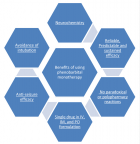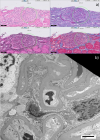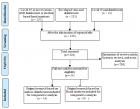Abstract
Case Report
Frequent, Genetic Polyps-Familial Adenomatous Polyposis
Anubha Bajaj*
Published: 21 May, 2020 | Volume 4 - Issue 1 | Pages: 015-019
Familial adenomatous polyposis is an autosomal dominant syndrome of variable penetration and constitutes the second frequent inherited syndrome enunciating the emergence of a colorectal carcinoma. The syndrome is accompanied by exemplification of defective adenomatous polyposis coli (APC) gene located upon chromosome 5q21 with a prototypic denomination of colonic adenomatous polyps usually exceeding a > 100. Incriminated individuals develop innumerable colonic and rectal polyps, particularly during early teenage years and are accompanied by an almost 100% possible emergence of colorectal carcinoma within 40 years in untreated subjects [1]. Prophylactic colectomy is advisable to substantially reduce possible occurrence of colorectal carcinoma. Familial adenomatous polyposis is concurrent with associated neoplasms such as gastric or duodenal cancer, hepatoblastoma or desmoid tumour along with a probable emergence of extra-colonic carcinomas [1,2].
Read Full Article HTML DOI: 10.29328/journal.acgh.1001017 Cite this Article Read Full Article PDF
References
- Kanth P, Grimmett J, Champine M, Burt R, Samadder NJ. Hereditary Colorectal Polyposis and Cancer Syndromes: A Primer on Diagnosis and Management. Am J Gastroenterol. 2017; 112:1509-1525. PubMed: https://www.ncbi.nlm.nih.gov/pubmed/28786406
- Chintalacheruvu LM, Shaw T, Buddam A, Diab O, Kassim T, et al. Major hereditary gastrointestinal cancer syndromes: a narrative review. J Gastrointestinal Liver Dis. 2017; 26: 157-163. PubMed: https://www.ncbi.nlm.nih.gov/pubmed/28617886
- Carr S, Kasi A. Familial adenomatous polyposis. StatPearls Publishing 2020. PubMed: https://www.ncbi.nlm.nih.gov/books/NBK538233/
- Sammour T, Hayes IP, Hill AG, Macrae FA, Winter DC. Familial colorectal cancer syndrome: an overview of clinical management. Expert Rev Gastroenterol Hepatol. 2015; 9: 757-764. PubMed: https://www.ncbi.nlm.nih.gov/pubmed/25779305
- DE Marchis ML, Tonelli F, Quaresmini D, Lovero D, Della-Morte D, et al. Desmoid tumours in familial adenomatous polyposis. Anticancer Res. 2017; 37: 3357-3366. PubMed: https://www.ncbi.nlm.nih.gov/pubmed/28668823
- Syngal S, Brand RE, Church JM, Giardiello FM, Hampel HL, et al. American College of Gastroenterology ACG: clinical guidelines: genetic testing and management of hereditary gastrointestinal cancer syndromes. Am J Gastroenterol. 2015; 110: 223-262. PubMed: https://www.ncbi.nlm.nih.gov/pubmed/25645574
- Chittleborough TJ, Warrier SK, Heriot AG, Kalady M, Church J. Dispelling misconceptions in the management of familial adenomatous polyposis. ANZ J Surg. 2017; 87: 441-445. PubMed: https://www.ncbi.nlm.nih.gov/pubmed/28266097
- Waller A, Findeis S, Lee MJ. Familial adenomatous polyposis. J Paediatr Genet. 2016; 5: 78-83. PubMed: https://www.ncbi.nlm.nih.gov/pubmed/27617147
- Dinarvand P, Davaro EP, Doan JV, Ising ME, Evans NR, et al. Familial adenomatous polyposis syndrome: an update and review of extra-intestinal manifestations. Arch Pathol Lab Med. 2019; 143: 1382-1398. PubMed: https://www.ncbi.nlm.nih.gov/pubmed/3107093
Figures:
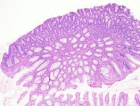
Figure 1
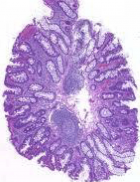
Figure 2
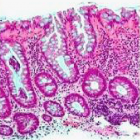
Figure 3

Figure 4
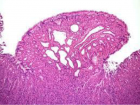
Figure 5
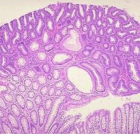
Figure 6

Figure 7
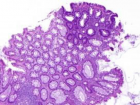
Figure 8
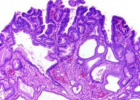
Figure 9
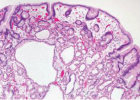
Figure 10
Similar Articles
-
A rare cause of obstructive jaundice - case reportPriya Mohan*,Sumathi Bavanandam,Sunil Kumar KS. A rare cause of obstructive jaundice - case report . . 2017 doi: 10.29328/journal.hcg.1001001; 1: 001-003
-
Anemia due to a rare anomaly - Case ReportS Nanthakumar*,Sumathi Bavanandam,Nirmala Dheivamani,Natarajan B, Krishna Mohan. Anemia due to a rare anomaly - Case Report . . 2017 doi: 10.29328/journal.hcg.1001002; 1: 004-006
-
The influence of Infliximab on the development of Experimental PancreatitisLychkova AE*,Golubev Yu Yu, Puzikov AM. The influence of Infliximab on the development of Experimental Pancreatitis . . 2017 doi: 10.29328/journal.hcg.1001003; 1: 007-011
-
Role of Accessory Right Inferior Hepatic Veins in evaluation of Liver TransplantationAwais Ahmed,Abdu Hafeez-Baig*, Mirza Akmal Sharif,Umair Ahmed,Raj Gururajan. Role of Accessory Right Inferior Hepatic Veins in evaluation of Liver Transplantation . . 2017 doi: 10.29328/journal.acgh.1001004; 1: 012-016
-
Analysis of Pyogenic Liver AbscessesEva Barreiro Alonso**. Analysis of Pyogenic Liver Abscesses . . 2018 doi: 10.29328/journal.acgh.1001005; 2: 001-004
-
Hepatic adenomatosis: A clinically challenging rare liver diseaseSunitha Ramachandra*,Lakshmi Rao, Masoud Al Kindi . Hepatic adenomatosis: A clinically challenging rare liver disease. . 2018 doi: 10.29328/journal.acgh.1001006; 2: 005-008
-
An uncommon cause of isolated ascites: Pseudomyxoma peritoneiLouly Hady*,I Nassar, K Znati,N Kabbaj. An uncommon cause of isolated ascites: Pseudomyxoma peritonei . . 2019 doi: 10.29328/journal.acgh.1001007; 3: 001-005
-
Transcatheter Arterial Embolization for the treatment of upper gastrointestinal bleedingMohammed Habib*,Majed Alshounat. Transcatheter Arterial Embolization for the treatment of upper gastrointestinal bleeding . . 2019 doi: 10.29328/journal.acgh.1001008; 3: 006-011
-
Endoscopic treatment of pancreatic diseases via Duodenal Minor Papilla: 135 cases treated by Sphincterotomy, Endoscopic Pancreatic Duct Balloon Dilation (EPDBD), and Pancreatic Stenting (EPS)Tadao Tsuji*, G Sun,A Sugiyama, Y Amano,S Mano,T Shinobi,H Tanaka,M Kubochi,K Ohishi,Y Moriya,M Ono,T Masuda, H Shinozaki,H Kaneda,H Katsura,T Mizutani, K Miura,M Katoh, K Yamafuji, K Takeshima,N Okamoto,Y Hoshino,N Tsurumi,S Hisada,J Won,T Kogiso,K Yatsuji,M Iimura, T Kakimoto,S Nyuhzuki. Endoscopic treatment of pancreatic diseases via Duodenal Minor Papilla: 135 cases treated by Sphincterotomy, Endoscopic Pancreatic Duct Balloon Dilation (EPDBD), and Pancreatic Stenting (EPS) . . 2019 doi: 10.29328/journal.acgh.1001009; 3: 012-019
-
Addition of Simvastatin to Carvedilol and Endoscopic Variceal Ligation improves rebleeding and survival in patients with Child-Pugh A and B class but not in Child Pugh C classSanjeev Kumar Jha*,Kuldeep Saharawat,Ravi Keshari,,Praveen Jha,Shubham Purkayastha, Ravish Ranjan . Addition of Simvastatin to Carvedilol and Endoscopic Variceal Ligation improves rebleeding and survival in patients with Child-Pugh A and B class but not in Child Pugh C class . . 2019 doi: 10.29328/journal.acgh.1001010; 3: 020-026
Recently Viewed
-
Agriculture High-Quality Development and NutritionZhongsheng Guo*. Agriculture High-Quality Development and Nutrition. Arch Food Nutr Sci. 2024: doi: 10.29328/journal.afns.1001060; 8: 038-040
-
A Low-cost High-throughput Targeted Sequencing for the Accurate Detection of Respiratory Tract PathogenChangyan Ju, Chengbosen Zhou, Zhezhi Deng, Jingwei Gao, Weizhao Jiang, Hanbing Zeng, Haiwei Huang, Yongxiang Duan, David X Deng*. A Low-cost High-throughput Targeted Sequencing for the Accurate Detection of Respiratory Tract Pathogen. Int J Clin Virol. 2024: doi: 10.29328/journal.ijcv.1001056; 8: 001-007
-
A Comparative Study of Metoprolol and Amlodipine on Mortality, Disability and Complication in Acute StrokeJayantee Kalita*,Dhiraj Kumar,Nagendra B Gutti,Sandeep K Gupta,Anadi Mishra,Vivek Singh. A Comparative Study of Metoprolol and Amlodipine on Mortality, Disability and Complication in Acute Stroke. J Neurosci Neurol Disord. 2025: doi: 10.29328/journal.jnnd.1001108; 9: 039-045
-
Development of qualitative GC MS method for simultaneous identification of PM-CCM a modified illicit drugs preparation and its modern-day application in drug-facilitated crimesBhagat Singh*,Satish R Nailkar,Chetansen A Bhadkambekar,Suneel Prajapati,Sukhminder Kaur. Development of qualitative GC MS method for simultaneous identification of PM-CCM a modified illicit drugs preparation and its modern-day application in drug-facilitated crimes. J Forensic Sci Res. 2023: doi: 10.29328/journal.jfsr.1001043; 7: 004-010
-
A Gateway to Metal Resistance: Bacterial Response to Heavy Metal Toxicity in the Biological EnvironmentLoai Aljerf*,Nuha AlMasri. A Gateway to Metal Resistance: Bacterial Response to Heavy Metal Toxicity in the Biological Environment. Ann Adv Chem. 2018: doi: 10.29328/journal.aac.1001012; 2: 032-044
Most Viewed
-
Evaluation of Biostimulants Based on Recovered Protein Hydrolysates from Animal By-products as Plant Growth EnhancersH Pérez-Aguilar*, M Lacruz-Asaro, F Arán-Ais. Evaluation of Biostimulants Based on Recovered Protein Hydrolysates from Animal By-products as Plant Growth Enhancers. J Plant Sci Phytopathol. 2023 doi: 10.29328/journal.jpsp.1001104; 7: 042-047
-
Sinonasal Myxoma Extending into the Orbit in a 4-Year Old: A Case PresentationJulian A Purrinos*, Ramzi Younis. Sinonasal Myxoma Extending into the Orbit in a 4-Year Old: A Case Presentation. Arch Case Rep. 2024 doi: 10.29328/journal.acr.1001099; 8: 075-077
-
Feasibility study of magnetic sensing for detecting single-neuron action potentialsDenis Tonini,Kai Wu,Renata Saha,Jian-Ping Wang*. Feasibility study of magnetic sensing for detecting single-neuron action potentials. Ann Biomed Sci Eng. 2022 doi: 10.29328/journal.abse.1001018; 6: 019-029
-
Pediatric Dysgerminoma: Unveiling a Rare Ovarian TumorFaten Limaiem*, Khalil Saffar, Ahmed Halouani. Pediatric Dysgerminoma: Unveiling a Rare Ovarian Tumor. Arch Case Rep. 2024 doi: 10.29328/journal.acr.1001087; 8: 010-013
-
Physical activity can change the physiological and psychological circumstances during COVID-19 pandemic: A narrative reviewKhashayar Maroufi*. Physical activity can change the physiological and psychological circumstances during COVID-19 pandemic: A narrative review. J Sports Med Ther. 2021 doi: 10.29328/journal.jsmt.1001051; 6: 001-007

HSPI: We're glad you're here. Please click "create a new Query" if you are a new visitor to our website and need further information from us.
If you are already a member of our network and need to keep track of any developments regarding a question you have already submitted, click "take me to my Query."







